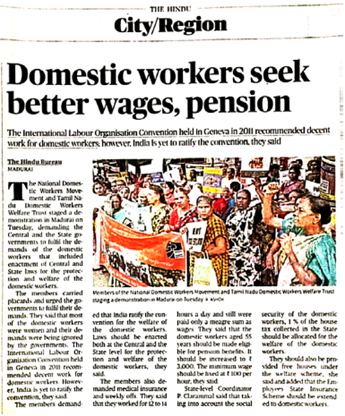My name is Thel Sreypov, I’m 22 years old. I started working on the banana farm back in 2019 when I was in 14 years old. After some time, I stopped working so I could continue my studies. But I had to leave school when I was 17 because my family didn’t have enough income and my mother had an accident. That’s why I came back to work on the farm—and I’m still here.
Right now, women workers like me earn only 28,000 riels (€6.1) per day, no matter the kind of work we do. Even if we do the same tasks as the men, we get paid less. It’s not fair. The pay isn’t enough. In my family, only two of us are working, and when it rains or there’s no work, we don’t earn enough to support everyone. We often have to borrow money just to get by.
Before we met the trade union leaders, we didn’t know anything about our rights. I didn’t even know what the National Social Security Fund (NSSF) was. But after we met Mr. Heng Choeun, the president of the Cambodian Agricultural Workers Federation (CAWF), and the team from the Cambodian Labour Confederation (CLC), we started learning about labour rights and the benefits of the NSSF like healthcare, work injury support, childbirth benefits, and pensions.
Now, I can explain these things to other workers. I don’t help everyone, but I try to share what I’ve learned, so others know their rights too. Before, everyone was scared to speak up. But now, we are brave enough to ask the company to register us for the NSSF. The company used to only register a few workers to look good, but we’re demanding real action.
I really want the NSSF card because we face risks at work every day. If something happens and we don’t have that card, we have to pay for everything ourselves—and with our small salaries, we can’t afford it. We also want the maternity benefits and the pension when we’re older.
But we still face many problems. The working conditions aren’t right. Sometimes we’re told to work on Sundays or holidays, and if we don’t, we don’t get paid. They can also stop us from working without notice. There aren’t enough bathrooms. And women still don’t earn the same as men—even when we’re doing the exact same job.
So, what we want is simple: we want NSSF cards for all workers, working conditions to follow the labour law and fair wages for women—equal pay for equal work. I now understand my rights. And that gives me the courage to help others speak up too.











